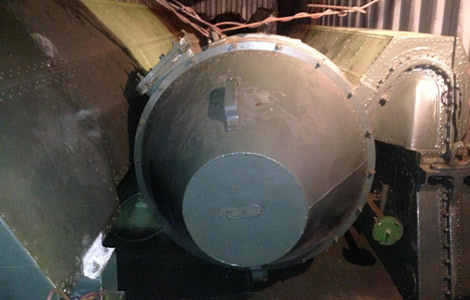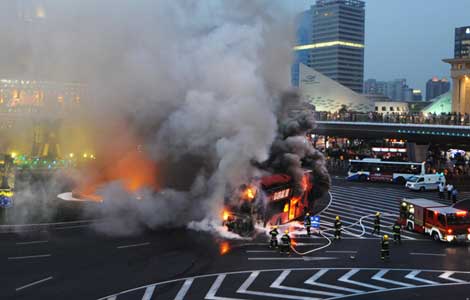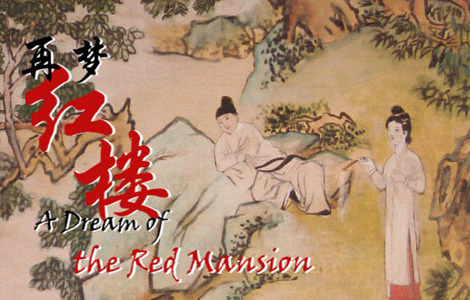'Mass line' campaign shows CPC's determination
Updated: 2013-07-17 22:00
(Xinhua)
|
||||||||
BEIJING - The reinforcement of the "mass line" has demonstrated the determination of the Communist Party of China (CPC) to correct any misbehavior that may get in the way of its development.
The "mass line," a guideline introduced by the revolutionary forerunners of the CPC, champions close Party-people relations that helped the Party come to the national power.
The CPC followed the line and grew stronger by aligning with the public during the the Agrarian Revolutionary War (1927-1937), the War of Resistance Against Japanese Aggression (1937-1945) and the War of Liberation (1945-1949).
The line's significance was brought up again decades after its introduction. Top CPC leaders decided in April to launch a year-long "mass line" campaign from the second half of this year to cement Party-people ties.
CPC officials at or above county level are required to reflect on their own practices and correct any misbehavior.
Xi Jinping, General Secretary of the CPC Central Committee, said in June that the campaign will be a "thorough cleanup" of undesirable work styles such as formalism, bureaucratism, hedonism and extravagance among officials.
The campaign came on the heels of an "eight-point" regulation that the CPC leadership began promoting in December 2012 to ban extravagance and formalism from events attended by officials.
Both the "eight-point" instruction and the "mass line" campaign are the CPC leadership's endeavor to shoot persistent problems such as red tape, corruption and Party-people alienation among officials.
Upon starting the campaign, the CPC leadership has realized that making officials stay close to the people and refine their work style is as important as "locking their power in a cage."
It also shows that the Party seeks to first improve its members' work style before moving ahead to address deep-rooted social problems.
Unlike their revolutionary forerunners, however, the current CPC leadership will find that the situation for the Party to implement the "mass line" is different from that of decades ago.
It is the temptation of power abuse and huge bribes that the current CPC officials must fight against this time rather than enemy soldiers their revolutionary forerunners had to eliminate decades ago.
After six decades in power, the CPC has elevated China to its place as the world's second-largest economy. The country's growing prosperity has provided Party officials with opportunities to corruption.
A number of high-ranking officials have been involved in scandals and corruption in recent years. Among them are Bo Xilai and Liu Zhijun, who served as Party chief of Southwest China's Chongqing municipality and railways minister, respectively, before they were expelled from the Party due to corruption.
Meanwhile, interests and values of the Chinese people are increasingly diversified. They have become more vocal about their legitimate rights and interests, particularly on the Internet.
Under such circumstances, officials must efficiently address people's complaints and tackle their problems to guarantee stability and protect the public's interests.
To achieve that end, CPC officials must first start with themselves. They should "look in the mirror, and straighten their attire" in order to become closer to the public.
The "mass line," which is considered by the CPC as its "lifeline" and a "fundamental route of work," will never be old-fashioned and remain as a traditional advantage, only if it is implemented well.
Most Viewed
Editor's Picks

|

|

|

|

|

|
Today's Top News
China cuts 20 approval items for film, TV sectors
Cuba says seized DPRK ship carries weapons
Royals 'waiting by telephone' for Kate's baby
US attorney general questions gun law
China's US T-bill holdings hit record in May
iPhone death probed by Apple
Spring agency flourishes with travelers to US
Chinese textile industry aims for 'green'
US Weekly

|

|













